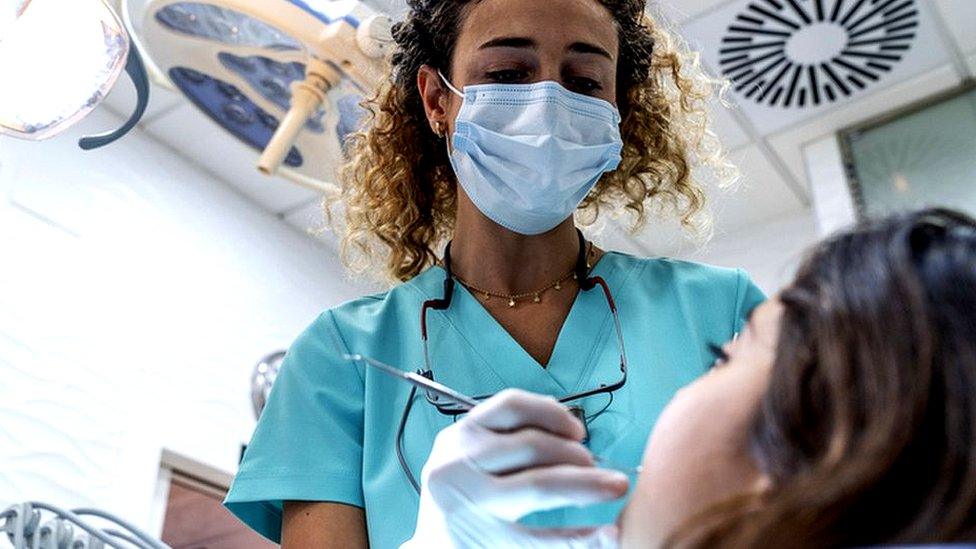Refugee dentists urge government 'let us help NHS'
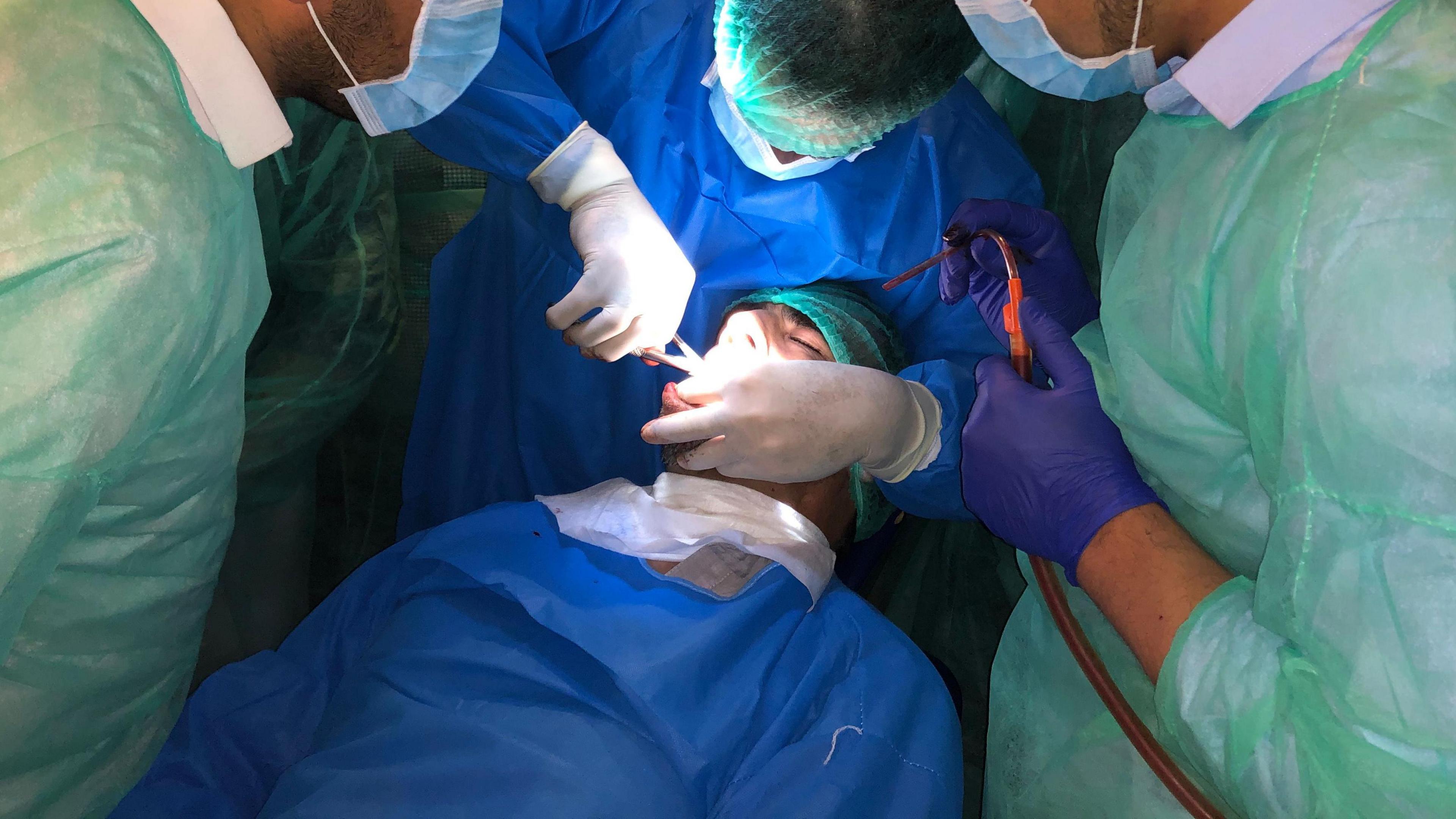
Naveed ran a specialist dental clinic in Afghanistan
At a glance
Dentist who fled the Taliban says more must be done to allow refugee dentists help the NHS
Government launches consultation into proposals for a more accessible route into work for overseas dentists, as the UK's dental crisis grows
Charity says it is "ludicrous" having dentists unable to work while people are "pulling out their own teeth"
- Published
Refugee dentists are urging authorities to let them help the NHS, amid a growing crisis over access to services.
Across the UK people have been hit by lengthy waiting lists, with some resorting to pulling out their own teeth as they struggle to find a dentist.
At the same time, skilled dentists are "sitting in their homes" desperate to help, but hindered by red tape.
The chair of a refugee charity described the situation as "ludicrous", as the government launched a plan to simplify the route into work for overseas dentists.
Fran Wood, chair of Darlington Assistance for Refugees (DAR), said there are at least 10 skilled dentists in the Tees Valley area.
The group is campaigning to establish a more accessible route into work for trained dentists who are currently seeking asylum.
Currently, they face significant costs and lengthy waits to sit the General Dental Council's (GDC) overseas registration exams (ORE).
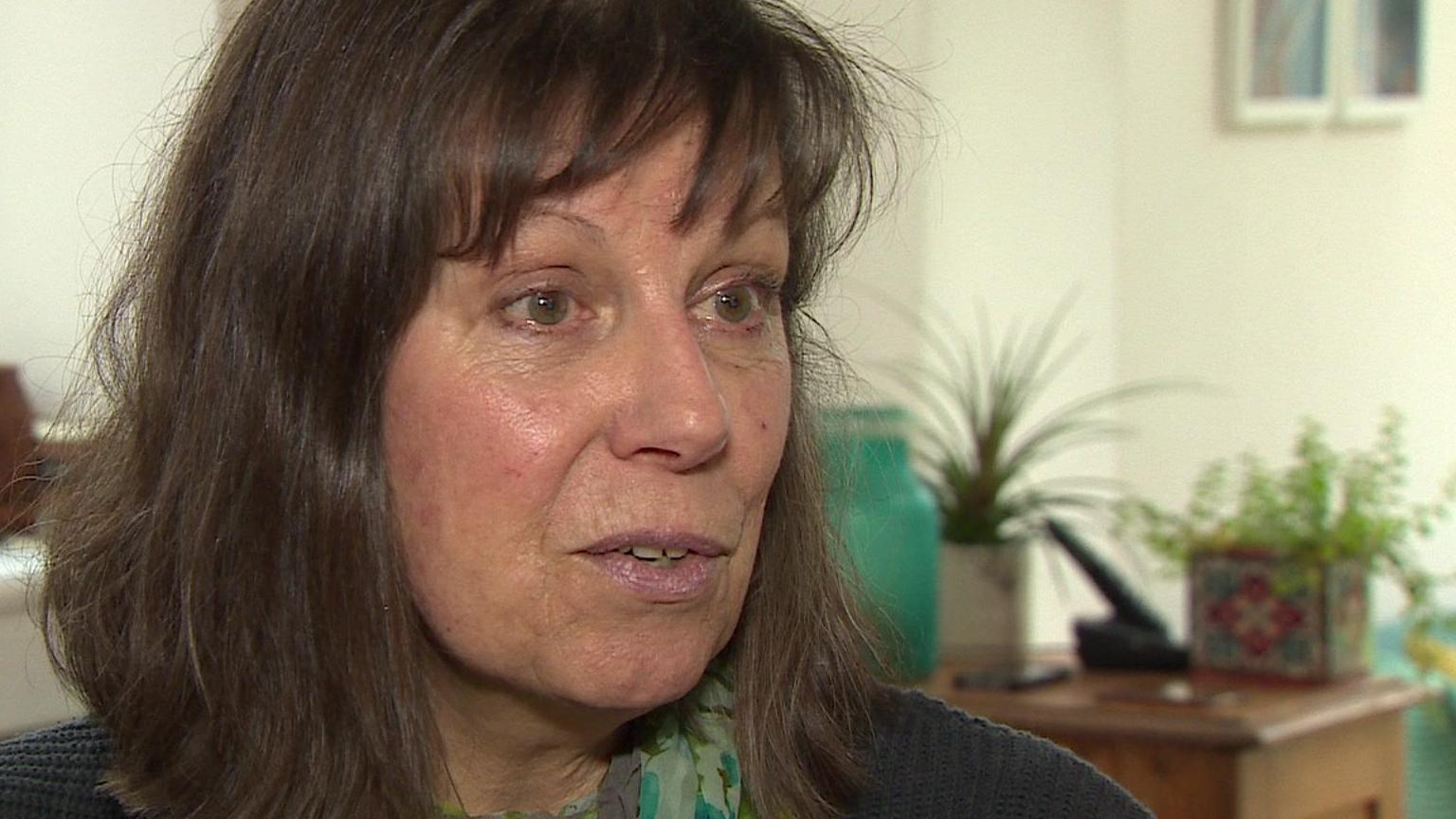
Fran Wood, chair of Darlington Assistance for Refugees, says a "clear pathway" is needed to get refugee dentists back into work
She said the cost of the ORE was out of reach for most asylum seekers because they are not allowed to work.
"And even if they did get that qualification, dentistry is bizarrely not on the government's occupation shortages list, so they would be unable to work as dentists anyway," she added.
"I can't even imagine how frustrating they must find it.
"They are highly skilled yet sitting in their homes becoming deskilled while people in our neighbourhoods are pulling out their own teeth."
Fleeing the Taliban
In his native Afghanistan, dentist Naveed ran a specialist clinic and gave free treatment to women who had fled the Taliban.
When the Taliban came to power in 2021, Naveed was told to reveal the whereabouts of those he had helped.
He refused, and recognising the danger he was in, he fled the country with his family.
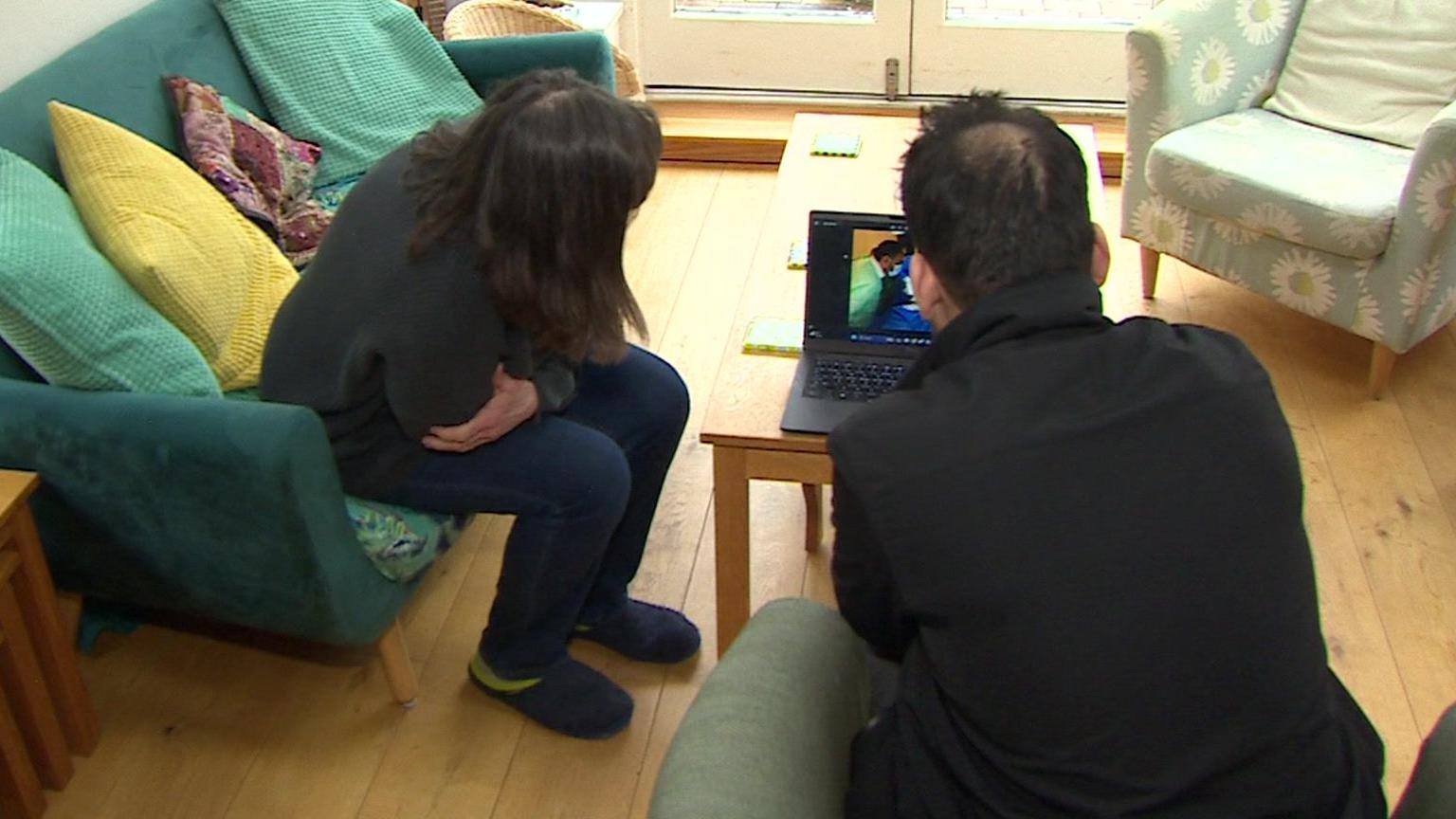
Dentist Naveed sharing his portfolio, and his memories, with Fran Wood
Now living in Darlington, he said he was desperate to return to work.
"There is a shortage of NHS dentists and if asylum seekers could work, we could help the NHS," he said.
"This would be very good for the NHS and for British people."
The British Dental Association (BDA) is among those backing calls to make the transition to practice in the UK easier for overseas dentists.
The union has called on the government to provide financial support, and said it wanted to see a "fair and workable system" in place that did not compromise patient safety.
A spokeswoman said the BDA was sympathetic to the plight of refugee dentists and had "long highlighted" how difficult it was to navigate the system.
Government plans
In February, the government launched a consultation into plans to boost the dental workforce by allowing the GDC to provisionally register overseas dentists, speeding up the lengthy process.
Those on the provisional register would be able to work in the UK, under the supervision of a fully-registered dentist.
Primary care minister Andrea Leadsom said the proposals would abolish red tape, "while ensuring the highest standards of care and patient safety."
The GDC would be given autonomy in setting the terms of provisional registrations.
Stefan Czerniawski, executive director of strategy, described provisional registration as an "exciting opportunity", but added it would require commitment and collaboration across dentistry.
He said: "We need to move at pace, but we need to take the time to get this right."
Follow BBC Tees on X (formerly Twitter), external, Facebook, external and Instagram, external. Send your story ideas to northeastandcumbria@bbc.co.uk.
Related topics
More stories from the BBC
- Published8 February 2024
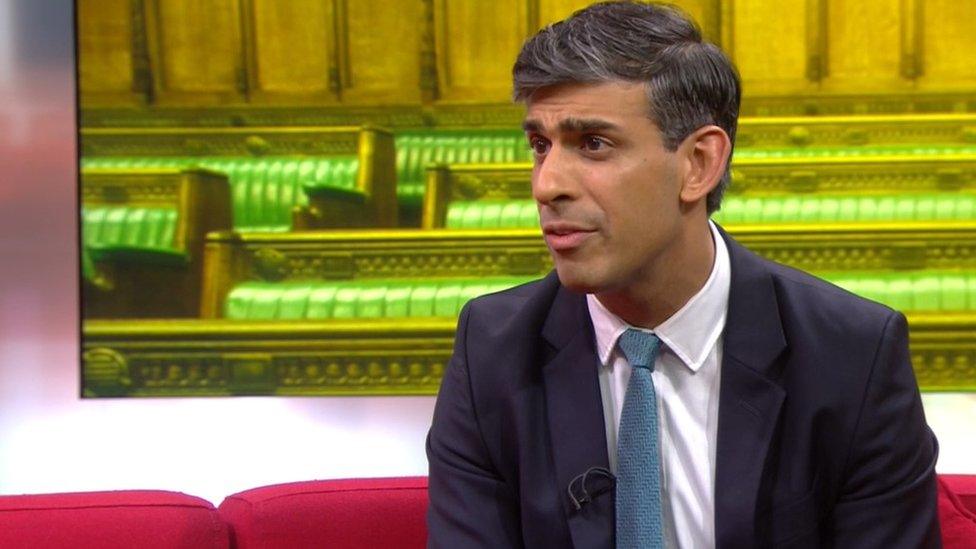
- Published19 December 2023
